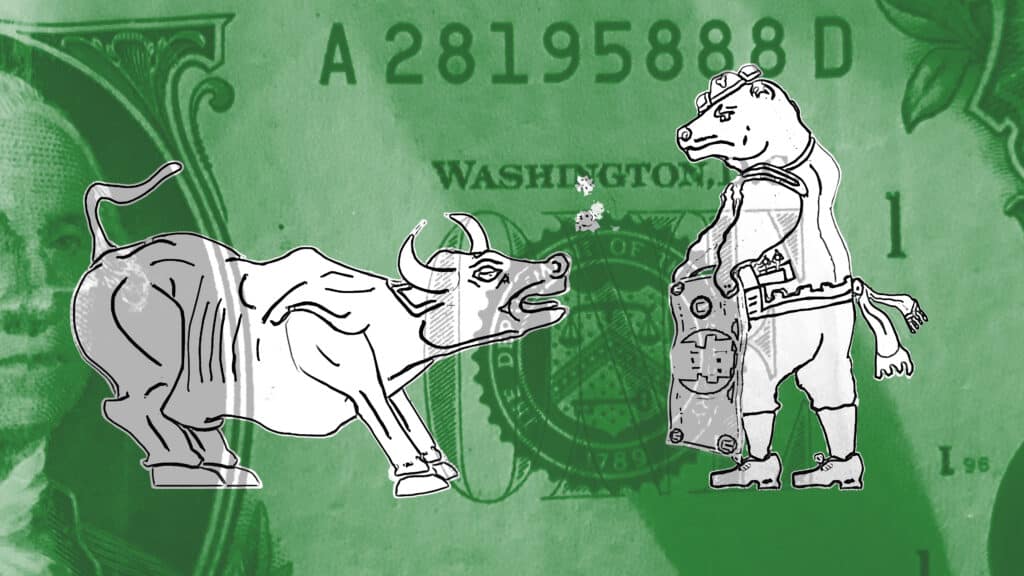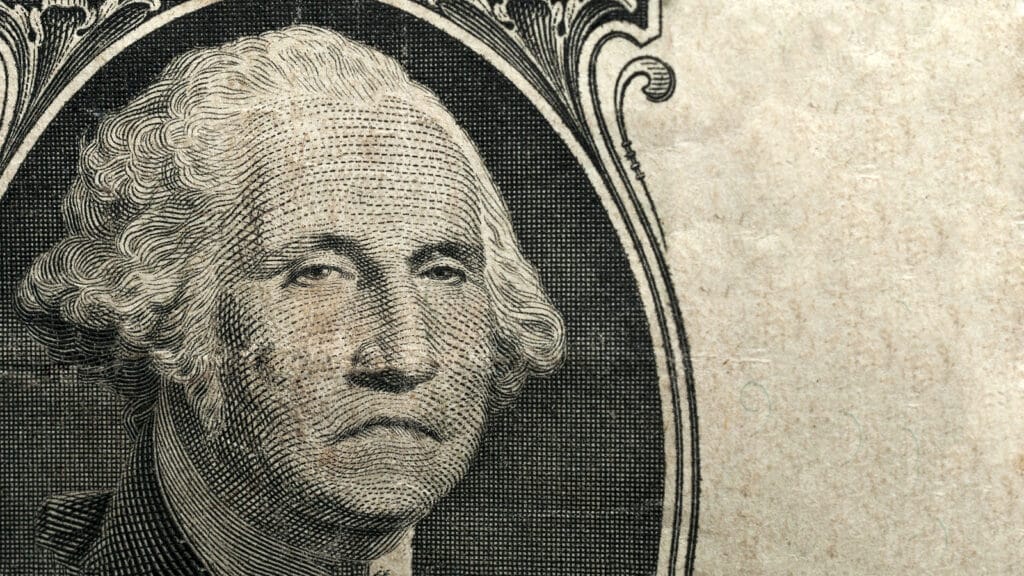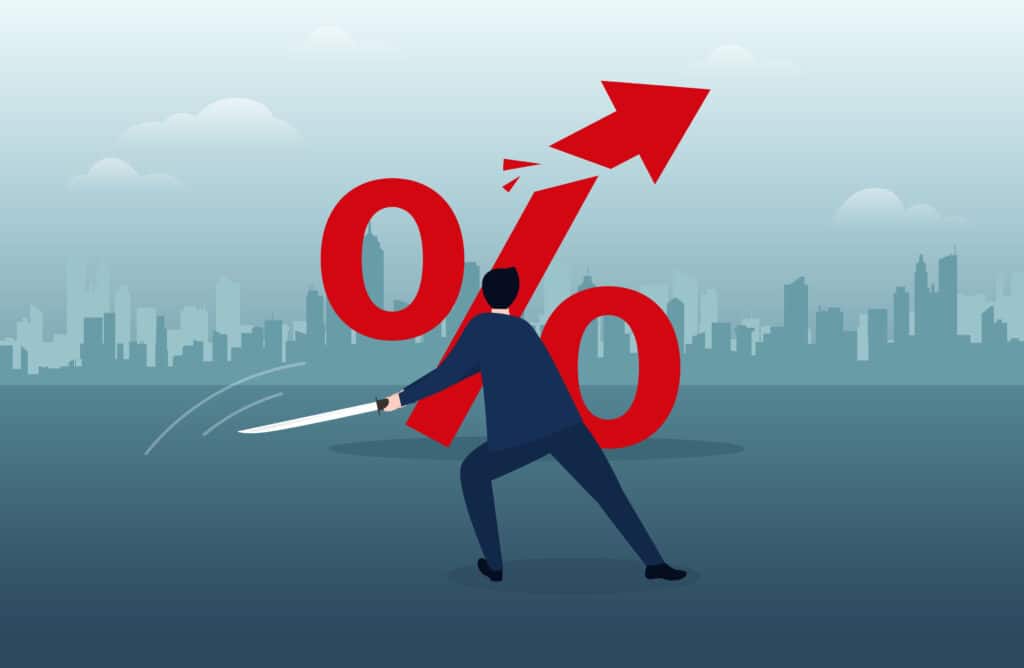The vice president is a question mark. Markets understand what to expect from Trump’s policies.
The Federal Reserve’s interest-rate cut comes as the unemployment rate is signaling a recession may be near—or even under way. If so, policy uncertainty will be a key factor driving the economy south. Economists have found that elections heighten market uncertainty dramatically when the proposals of opposing parties are especially divergent. That’s the case this time around, so expect the economy to struggle beneath the weight of uncertainty in the short term.
Kamala Harris’s evolving agenda has contributed to the uncertainty. President Trump’s first term gave markets a good idea of what he might do if re-elected. Ms. Harris, on the other hand, is anything but an open book.
In the past she endorsed myriad policies that, while popular among Democrats, would be extremely disruptive to the global economy. These include bans on fracking and offshore drilling, going carbon neutral by 2030, and killing the filibuster to pass the Green New Deal and pack the Supreme Court. She has also at one time or another expressed support for Medicare for All, a financial-transactions tax and a new form of wealth tax. Lately, however, she has reversed course on these and other progressive proposals, leaving policy analysts wondering which Ms. Harris the economy is going to get if she wins.
Among the easiest of her proposals to evaluate is her plan to raise the corporate tax rate from 21% to 28%, and to allow the 199A deduction—which grants pass-through entities the right to exclude 20% of their income from taxation—to expire.
For C corporations, the corporate-rate hike would be the largest increase enacted for any major advanced economy in at least 45 years.
A recent review by Aaron Hedlund and Michael Faulkender of the academic consensus that has emerged notes that the Tax Cuts and Jobs Act of 2017 lifted domestic investment by 20%. This coincided with a record $5,420 annual increase in real median household income in 2019. Since the original act was designed to be almost revenue neutral because of growth and the expansion of the tax base, the Harris proposal would lift the effective tax rate above what it was prior to the Trump tax reform for many forms of investment. The consequence would be a negative investment shock that would more than reverse the positive effects found in the literature.
The harm wouldn’t be limited to corporate investment. A large share of the burden of this new tax would fall directly on workers and consumers, exacerbating the affordability crisis by raising retail prices while wages decline. Firms’ demand for labor has dropped sharply and remains anemic. A tax hike would present a notable headwind to the labor market at an unusually bad time.
The second tax proposal concerns the 199A deduction, which is set to expire in 2025. According to Internal Revenue Service data, 25.9 million small businesses took advantage of this tax break in 2021. The elimination of the exclusion would add to the investment carnage of the higher corporate rate and affect every small business, not only the new startups that might benefit from Ms. Harris’s new startup incentives.
On regulatory policy, the records of the two candidates couldn’t be more different. According to a study by the University of Chicago’s Casey Mulligan, the Trump administration reduced regulatory lifetime costs by roughly $11,000 a household. New Biden-Harris administration regulations, on the other hand, have increased regulatory lifetime costs by an average of $47,000 a household. On trade, Mr. Trump and Ms. Harris are singing from the same hymnal. He relied heavily on tariffs during his first term, and the Biden-Harris team has kept most of those policies in place.
Considerable economic literature has shown that a strong rule of law is essential for a vibrant economy. Any complete economic analysis of Ms. Harris’s agenda should account for this. According to surveys that ask people if they have been victims of crime, there has been a collapse in the rule of law under the Biden-Harris administration. While violent crime fell by 17% during Mr. Trump’s four-year term, violent crime increased by 43% during the first two years of the Biden-Harris administration. This trend will likely grow worse if a Harris administration keeps faith with Biden administration policies.
Nobody knows what the future holds, but most everyone can remember what their lives were like four years ago. Mr. Trump is thus running on policies he once successfully enacted. A lively and mostly supportive academic record suggests those same policies would advance prosperity. Ms. Harris’s policies promise the opposite, causing identifiable and quantifiable harm to the economy, especially through higher taxation and heavier regulation. If the more radical policies she has supported in the past end up becoming law, the consequences would likely be a downside scenario too deep for economists’ models even to begin to simulate.
Mr. Hassett is a distinguished fellow in Economics at the Hoover Institution. He served as chairman of the White House Council of Economic Advisers, 2017-19. Mr. Clingenpeel was an economist and then senior adviser to the chairman of the council, 2018-21.
To read the full article click HERE.


